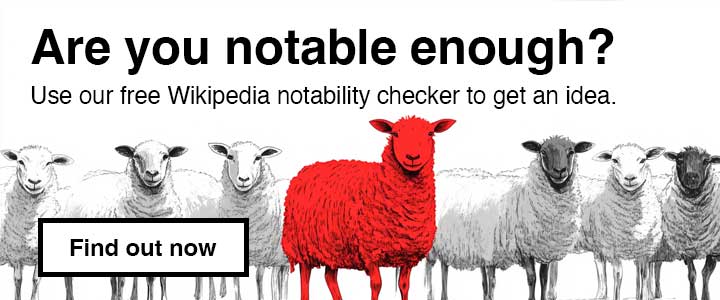Editing Wikipedia Wrong: 5 Common Reasons for Deletions and Rollbacks

Contributing to Wikipedia can be a rewarding experience, but it’s important to know what happens if you edit Wikipedia wrong. While a black helicopter with a giant “W” on the side probably won’t come gunning for you, incorrect edits can lead to rollbacks or deletions. Doing it wrong consistently can lead to bans.
This guide explores five common reasons why edits get reverted (rolled back). By understanding these pitfalls—such as lack of notability, conflicts of interest, policy violations, poor writing quality, and insufficient context—you can ensure your edits improve Wikipedia’s vast knowledge base and avoid unnecessary rejections.
Understanding why edits are sometimes rolled back or deleted can help you become a more effective contributor. Let’s explore the five most common reasons for edit rejections and how to avoid what happens if you edit Wikipedia wrong.
Table of Contents
- Lack of Notability or Reliable Sources
- Conflicts of Interest or Promotional Content
- Violations of Wikipedia’s Policies and Guidelines
- Poor Writing Quality or Lack of Clarity
- Insufficient Reason for Editing or Lack of Context
- FAQ
- Conclusion
1. Lack of Notability or Reliable Sources
This is the big one. One of the primary reasons Wikipedia editing has rollbacks or deleted edits is due to a lack of notability or reliable sources. Wikipedia has strict criteria for determining whether a topic is worthy of inclusion.
- Notability Criteria: The subject of an article must be notable and have received significant coverage in reliable, independent secondary sources.
- Importance of Reliable Sources: Wikipedia requires verifiable information from credible outlets to support its content.
- Examples of Good Sources: Reputable publications, academic journals, books from recognized publishers, and established news organizations like The New York Times or BBC.
For instance, if you’re writing about a new startup, ensure it has been covered by major news outlets and not just personal blogs or the company’s website. This adherence to reliable sources maintains Wikipedia’s integrity and credibility, sure. But it’ll also keep you out of the Wikipedia dog house.

Pro Tip: Always back up your claims with citations from reputable sources. This not only adds credibility to your edits but also helps other editors verify the information quickly. In our experience, when in doubt, add a solid reference.
2. Conflicts of Interest or Promotional Content
Wikipedia strictly prohibits editing articles where there’s a conflict of interest or adding promotional content. This policy helps maintain the platform’s neutrality and credibility.
- Conflict of Interest: This occurs when editors modify articles about themselves, their employer, or any entity in which they have a vested interest.
- Promotional Content: Any content that reads like an advertisement or PR release rather than an informative article.
- Maintaining Neutrality: Articles should present information objectively, without bias towards any particular viewpoint – this may be harder than it sounds.
For example, if you’re writing about a company, make sure the content is written in a neutral tone and backed by independent sources rather than just the company’s press releases. At Reputation X, we never use press releases or anything that could ever be questioned as a weak reference.
Best Practice: If you have a clear conflict of interest, disclose it on the article’s talk page and suggest changes there instead of editing the article directly.
3. Violations of Wikipedia’s Policies and Guidelines
Wikipedia has a set of core principles known as the Five Pillars, along with numerous specific guidelines detailing acceptable content standards. Violating these can lead to edit reversals or deletions.
- Common Violations: Copyright infringement, vandalism, and failure to maintain a neutral point of view.
- Copyright Issues: Always ensure you have the right to use any text or images you contribute. You can create the right with Creative Commons licenses (see this link for how to do it)
- Neutral Point of View: Present information fairly, without bias, and represent all significant viewpoints proportionately.
For instance, copying text directly from a copyrighted source or consistently adding biased content disrupts Wikipedia’s objective nature and can make articles suck.

Key Reminder: Familiarize yourself with Wikipedia’s policies and guidelines before making significant edits. This knowledge will help you contribute effectively and avoid common pitfalls.
4. Poor Writing Quality or Lack of Clarity
High-quality, clear writing is really key for Wikipedia articles. Poorly written content can lead to misinterpretation and degrade the overall quality of information. If your writing is terrible, some other editor will probably roll it back.
- Clarity is Key: Use simple, straightforward language to convey information effectively.
- Grammar and Spelling: Proper grammar and spelling contribute significantly to an article’s credibility and readability.
- Avoid Jargon: Unless necessary, steer clear of technical terms that might confuse general readers.
For example, instead of writing “The company, which was established back in the year 1999, is involved in the business of manufacturing,” you could say “The company, established in 1999, manufactures products.” This clarity and brevity improve readability. Think Earnest Hemingway style, that’s what we ask editors who volunteer to use.
Helpful Tools: Use writing assistance tools like Grammarly or Hemingway (the app, not the dead author) to improve your writing quality and ensure clarity. These can help identify issues in grammar, style, and readability.
5. Insufficient Reason for Editing or Lack of Context
Every edit on Wikipedia should have a clear purpose and provide documented context. Making changes without a good reason or adding information that lacks context can result in your edits being reversed.
- Purpose-Driven Edits: Each edit should aim to improve the article, whether by correcting inaccuracies, adding valuable information, or updating outdated data.
- Provide Context: Explain the rationale behind your edits, making it easier for other editors to understand and verify your changes.
- Use Edit Summaries: Always include a brief, clear explanation of your edit in the summary field. This can help your edits stick.
For instance, when updating statistical data, you might include an edit summary like “Updated COVID-19 statistics to reflect the latest WHO report (link provided in references).” This clarity helps other editors understand and verify your contribution quickly.
Best Practice: Before making an edit, ask yourself: “Does this change improve the article? Can I explain why this edit is necessary?” If you can’t answer yes to both, reconsider your edit.
FAQ
How do I edit a Wikipedia page?
To edit a Wikipedia page, click the “Edit” tab at the top of the article. You can choose between wiki markup or the VisualEditor. After making your changes, provide a brief edit summary explaining what you did and why. This helps maintain transparency and keeps the editing history clear.
What are the rules for editing Wikipedia?
Key rules include avoiding conflicts of interest, citing credible sources, and adhering to content policies. Articles should be written from a neutral standpoint and contain verifiable information. Familiarize yourself with Wikipedia’s plain and simple ruleset for detailed guidelines.
How do I create a new Wikipedia page?
First, create an account and use the Article Wizard. Ensure the topic is noteworthy and supported by reliable sources, as Wikipedia has strict notability criteria. This ensures articles are valuable and verifiable for readers.
How do I add a source to a Wikipedia article?
You can use the VisualEditor’s citation tool or insert footnotes manually with wiki markup. Always ensure the sources are reliable and verifiable to maintain the article’s integrity.
How do I rename a Wikipedia page?
Use the “Move this page” tab at the top of the article. Ensure that the new title accurately represents the content and hasn’t already been taken. Don’t forget to update any links pointing to the old title to keep the site’s navigation clean and intuitive.
Conclusion
Contributing to Wikipedia can be pretty great, but it’s important to understand and adhere to the platform’s standards to avoid having your edits rolled back or deleted. By being aware of common pitfalls such as lack of notability, conflicts of interest, policy violations, poor writing quality, and insufficient reasons for editing, you can ensure your contributions are valuable and lasting.
Understanding what happens if you edit Wikipedia wrong—such as having your edits reversed or your credibility questioned—underscores the importance of following Wikipedia’s guidelines and maintaining its integrity. Remember to provide context and reliable sources for your edits, avoid conflicts of interest, and use a neutral tone. By doing so, you’ll help build a more reliable and comprehensive global resource, benefiting countless users worldwide.
For more detailed information on Wikipedia’s guidelines and policies, visit the Wikipedia Guidelines page. Happy editing!
Tags: Wikipedia.
